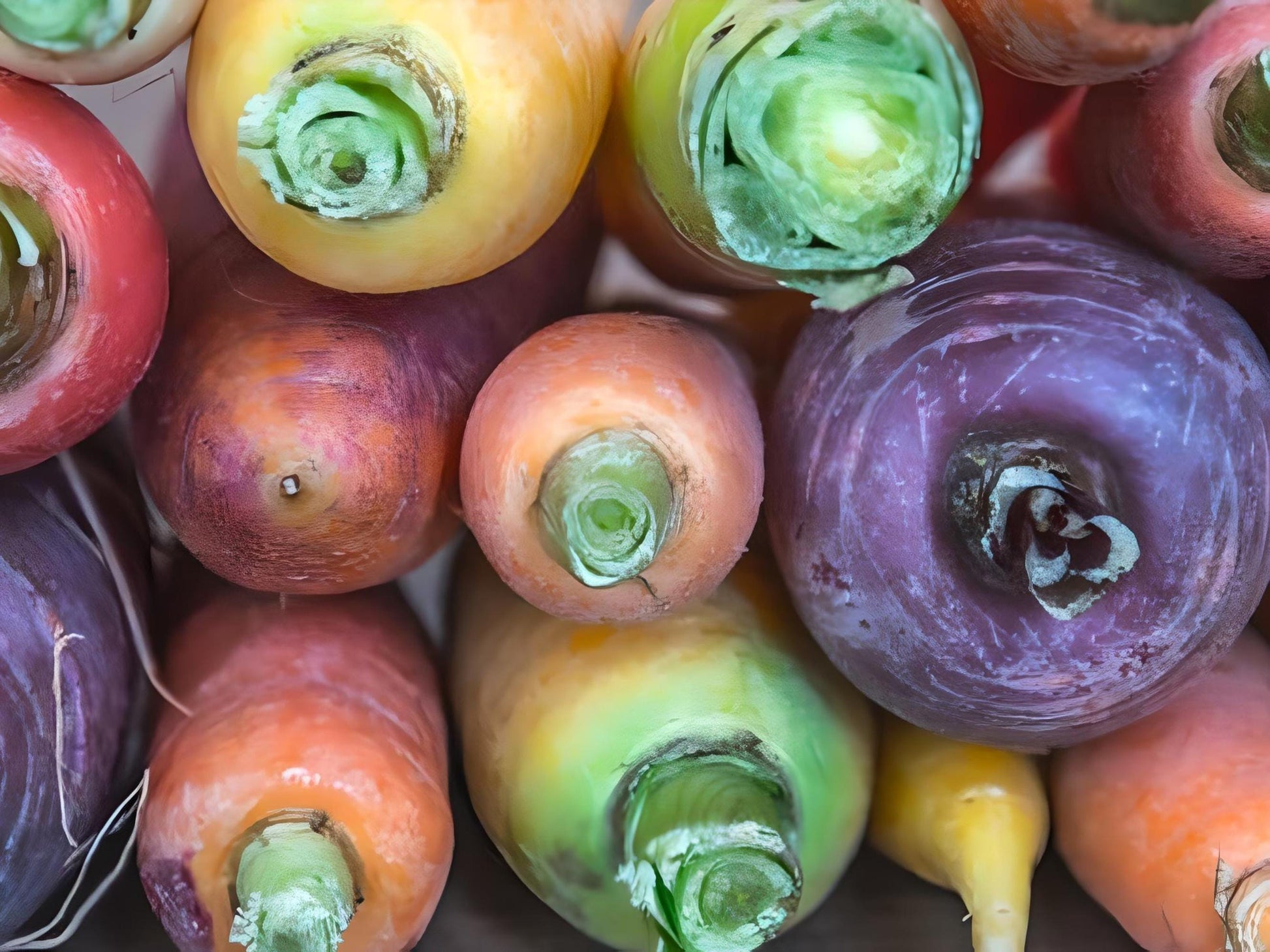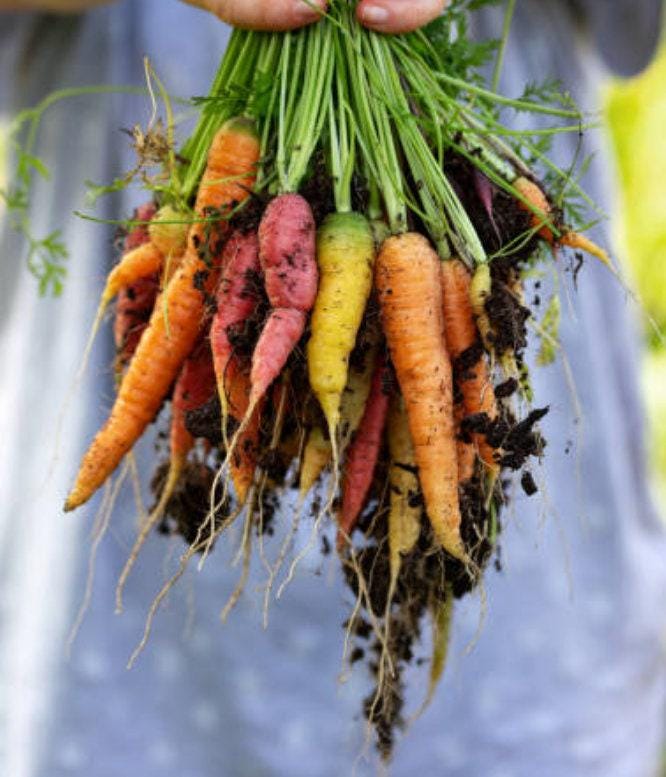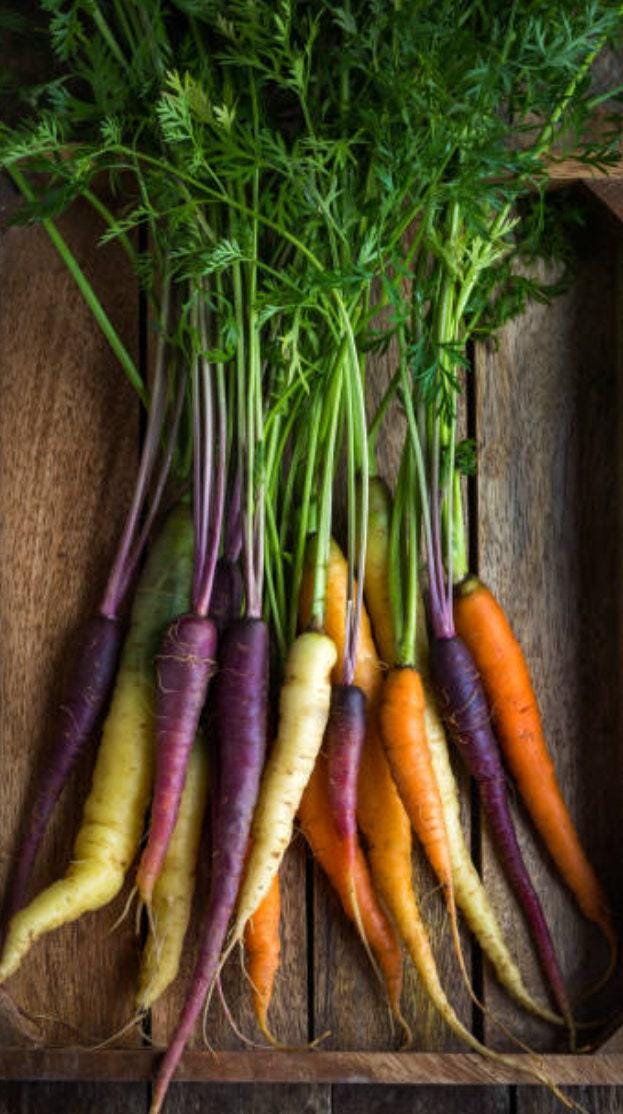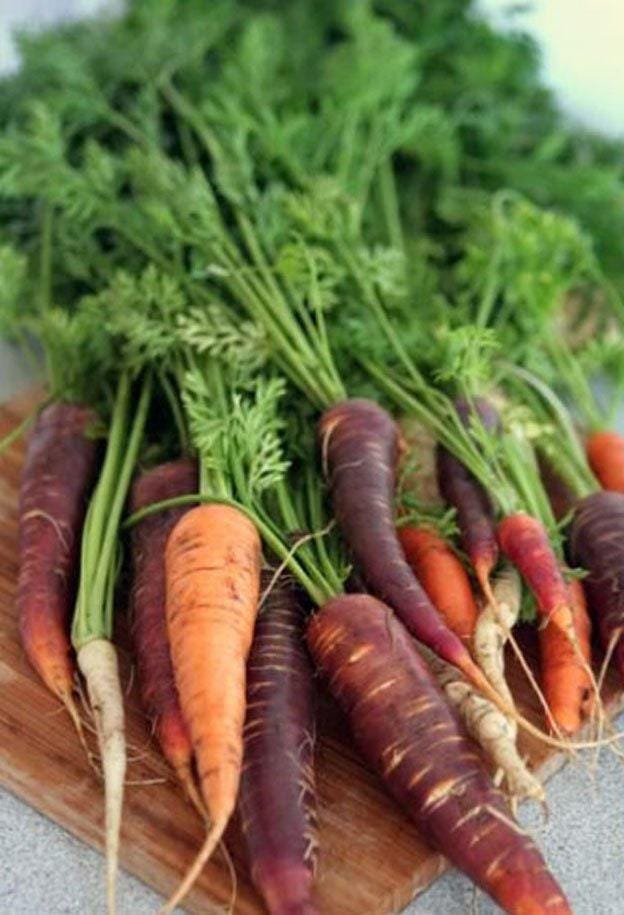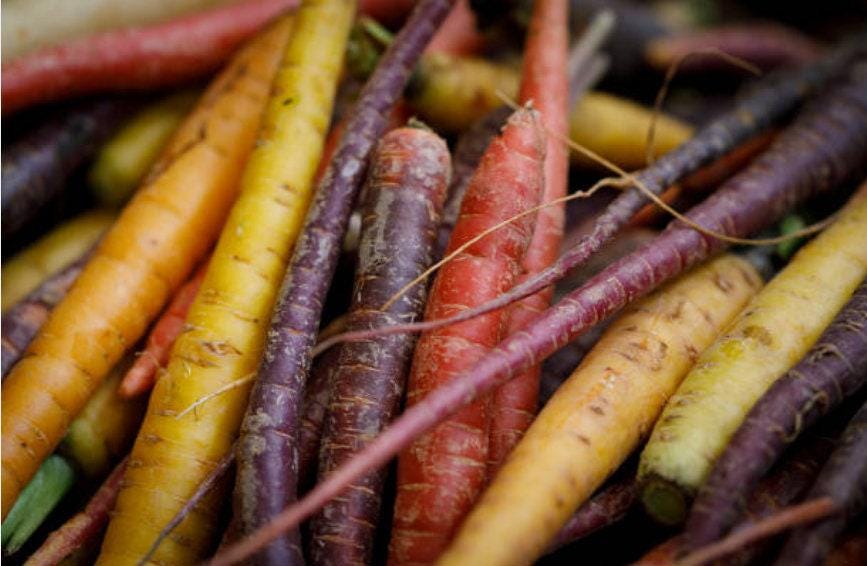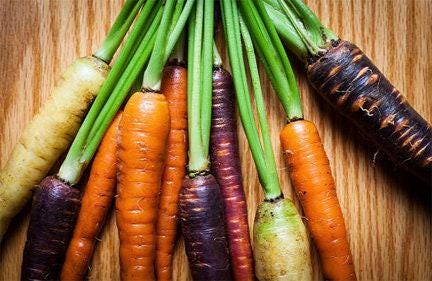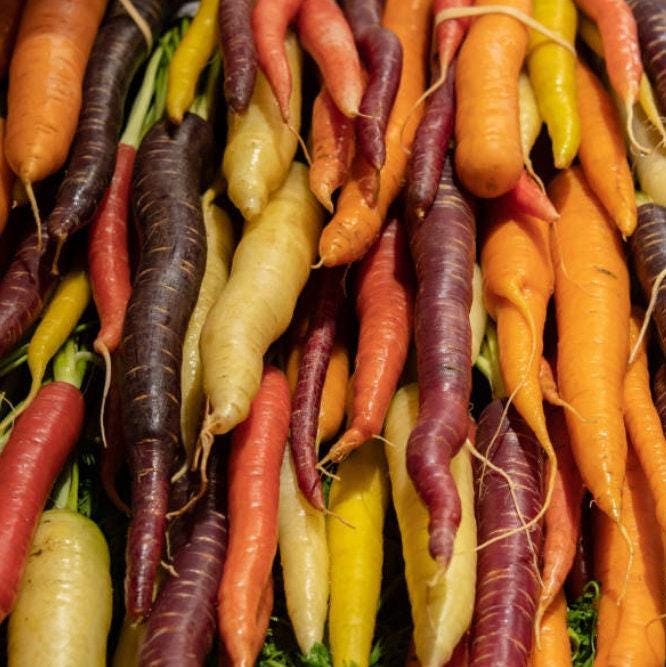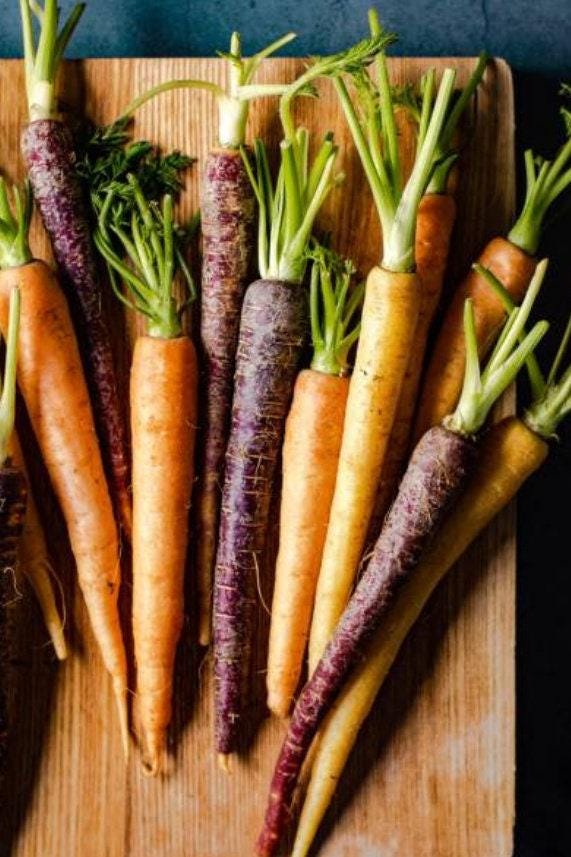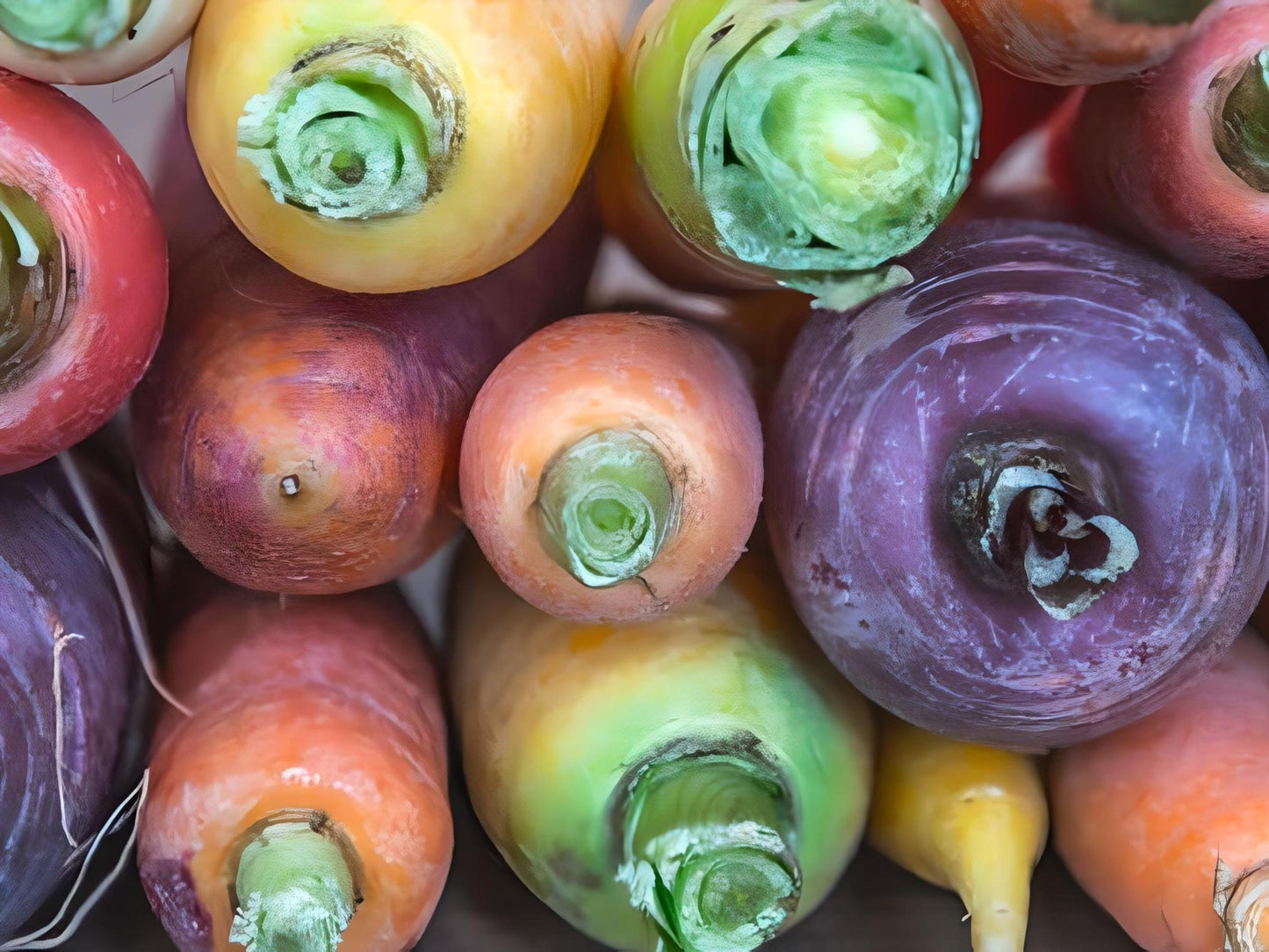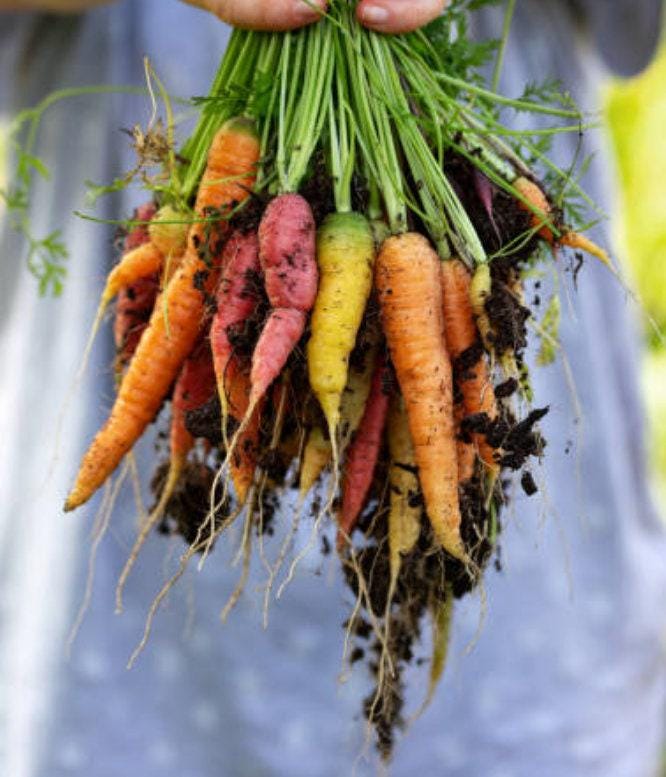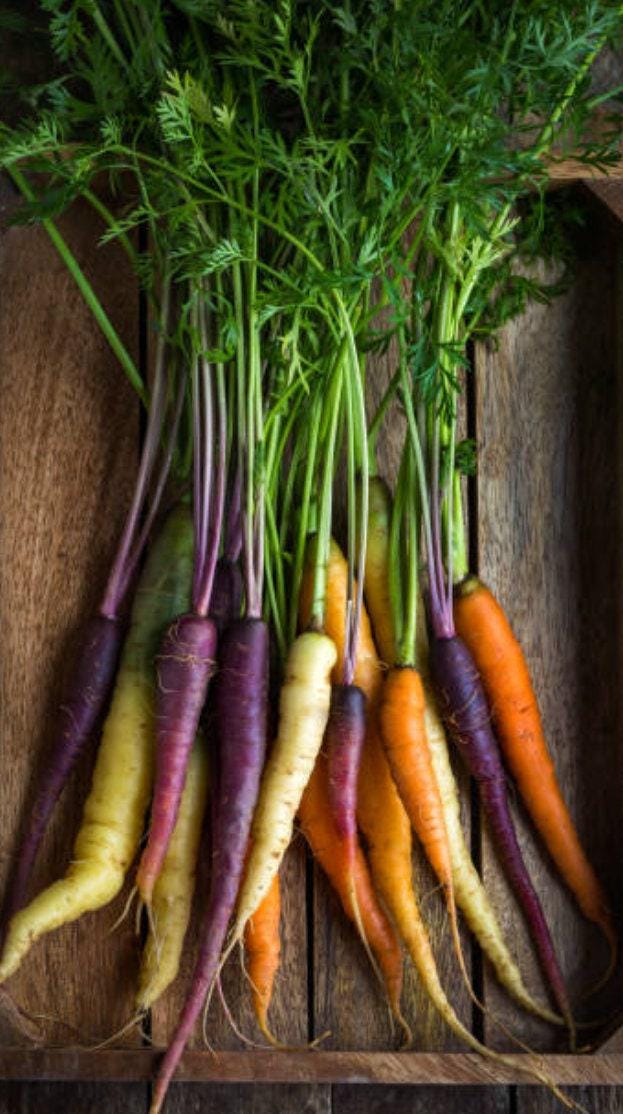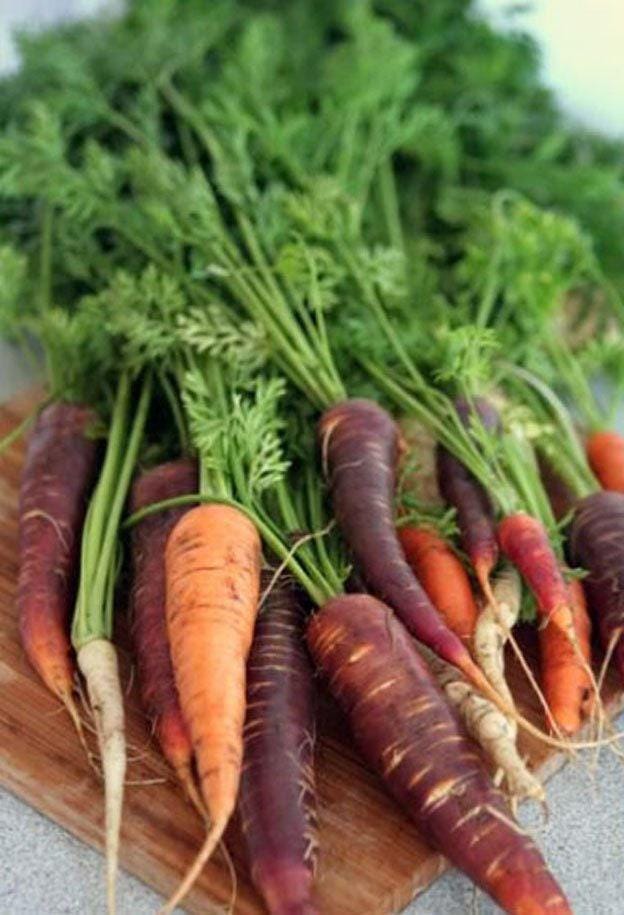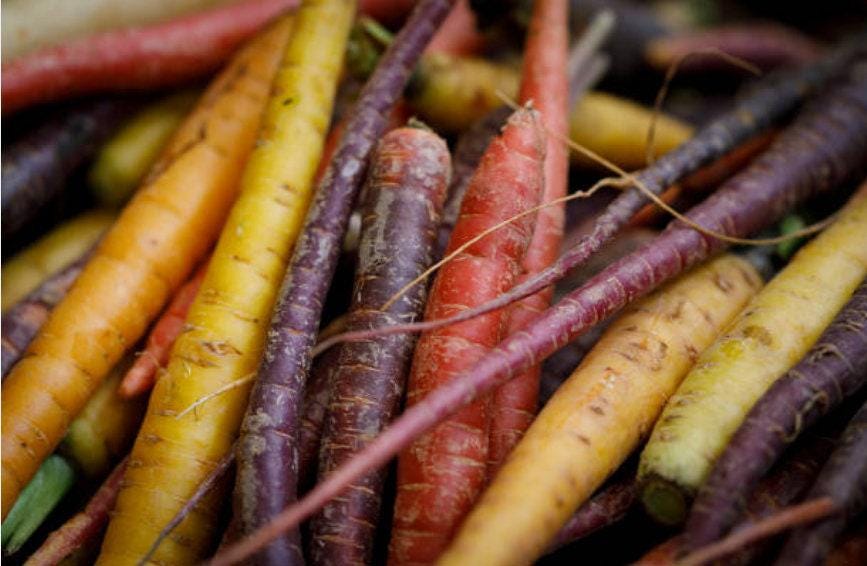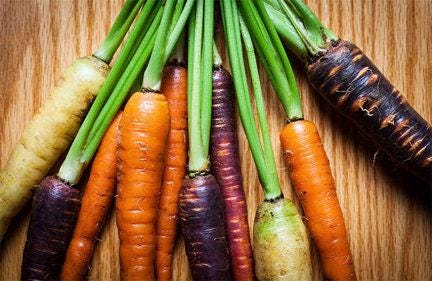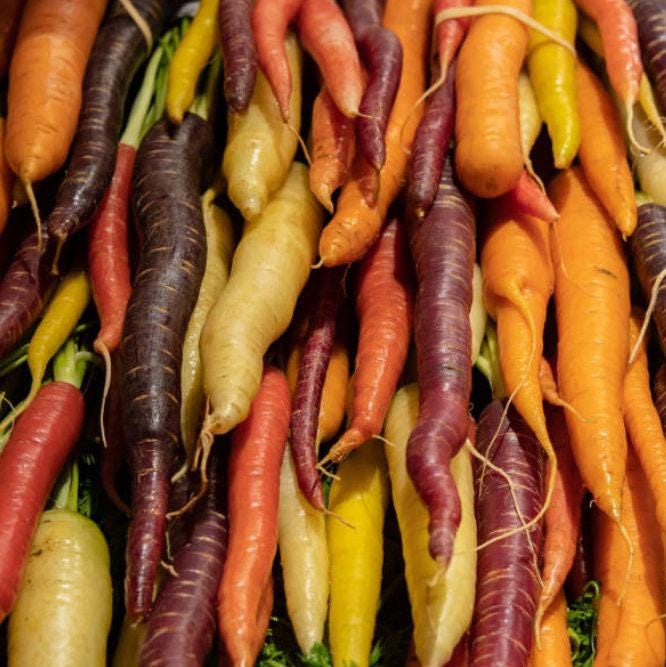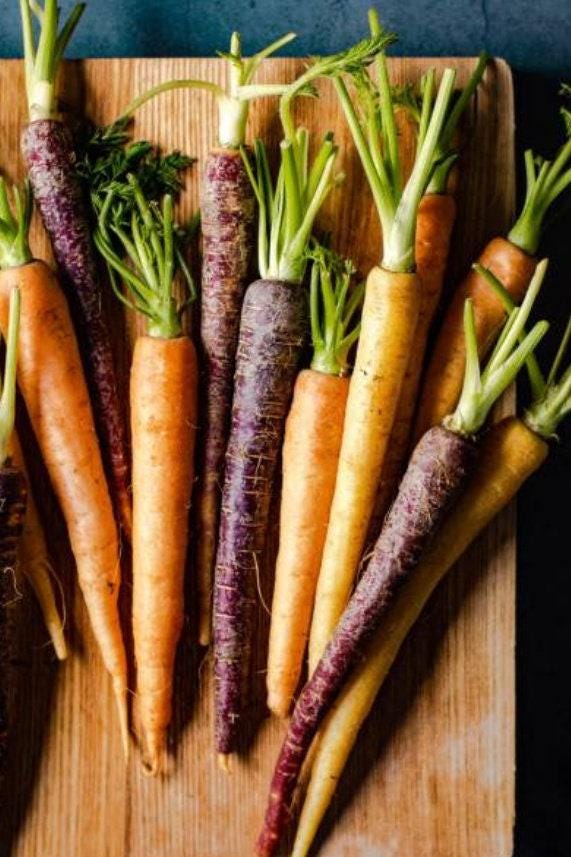Rainbow Carrot Mix brings together a blend of five heirloom varieties—Atomic Red, Bambino Orange, Cosmic Purple, Lunar White, and Solar Yellow—each offering its own unique color, flavor, and nutritional benefits. These carrots can be harvested when fully mature for a vibrant mix, or when they are just 3-4 inches long for gourmet baby carrots. Whether enjoyed fresh, cooked, or as a colorful addition to salads, these carrots add visual interest and diverse flavors to your garden and table.
Atomic Red carrots are noted for their deep red color, which intensifies when cooked, and their high lycopene content. Bambino Orange is the classic orange carrot, with a sweet and crisp flavor. Cosmic Purple features a striking purple skin with a bright orange interior, rich in anthocyanins. Lunar White offers a mild, delicate flavor and creamy white flesh, while Solar Yellow brings a sweet, crisp bite in a sunny yellow hue. Together, these carrots create a rainbow of nutrients and tastes.
* SCROLL DOWN FOR DETAILED GROWING INFO *
All Nimble NiteCap Seeds are:
• Heirloom
• Organic
• Non-GMO
• Open Pollinated
• Untreated
• US Grown
• growing instructions included
• Regular testing is conducted to uphold the highest germination standards, all the while employing appropriate seed storage techniques.
Sustainable Packaging & Shipping:
• NimbleNitecap seeds are packed in eco-friendly, compostable seed packets. Seed packets are printed in house with vegetable-based inks on biodegradable, recycled materials. (Small plastic bags are infrequently used to prevent the loss of very small seeds.)
• All orders are carefully packed and shipped with tracking via USPS First Class (or Priority, if selected) in padded ECOENCLOSE recycled and reusable mailers, or recycled boxes to protect your items in transit.
Most orders ship out the same or next business day! Please note that this time may be extended during peak season.
• FREE SHIPPING on all orders of $35 or more. Flat Rate shipping no matter how many packets you order.
* DIRECTIONS *
Common Names: Rainbow Carrot Mix
Latin Name: Daucus carota
Type: Root Vegetable
Life Cycle: Annual
USDA Zones: 3 - 10
Stratification: Not required
Germination Ease: Moderate (carrots can be slow to germinate)
Sunlight: Full Sun
Moisture: Prefers consistently moist, well-drained soil
Soil: Loose, sandy, well-drained soil with a pH between 6.0 and 7.0
Height: 8-12 inches (tops)
Spread: 1-2 inches (root diameter)
Color: Mix of red, orange, purple, white, and yellow
Bloom Season: N/A (grown for roots, not flowers)
Companion Plants: Suitable companions include radishes, onions, and peas.
Potential Toxicity: Non-toxic to humans and pets
Climate Adaptability: Thrives in cooler temperatures; best grown in spring and fall in most regions.
~ Sowing ~
When to Start Inside: Not recommended, as carrots do best when direct sown.
When to Start Outside: Direct sow seeds in early spring as soon as the soil can be worked, or in late summer for a fall crop.
Sowing Instructions: Sow seeds 1/4 inch deep in loose, well-drained soil. Space seeds 1-2 inches apart, or sow densely and thin seedlings to the desired spacing.
Planting Depth: Sow seeds 1/4 inch deep.
Watering: Keep the soil consistently moist during germination and throughout the growing season. Avoid waterlogging, as carrots are sensitive to overwatering.
Light and Temperature: Carrots prefer full sun and cooler temperatures, ideally between 55-75°F (13-24°C).
Germination: Seeds typically germinate in 14-21 days. Carrot seeds can be slow to germinate, so patience is key.
~ Transplanting Seedlings Outdoors ~
Timing: Direct sowing is recommended, as carrots do not transplant well.
Location: Choose a sunny location with loose, well-drained soil. Carrots grow best in sandy or loamy soil that is free of rocks and debris.
Spacing: Thin seedlings to 2-3 inches apart to allow for proper root development.
Transplanting: Not applicable; carrots should be direct sown.
~ Growing ~
Watering: Water regularly to keep the soil evenly moist. Carrots need consistent moisture for even growth and to prevent cracking.
Fertilizing: Carrots benefit from a balanced fertilizer or compost worked into the soil before planting. Avoid nitrogen-rich fertilizers, which can lead to excessive foliage at the expense of root development.
Pest and Disease Management: Monitor for pests such as carrot flies and root-knot nematodes. Use row covers to protect young plants and practice crop rotation to minimize disease.
Maintenance: Thin seedlings as needed to avoid overcrowding and ensure proper root development.
~ Harvesting ~
When to Harvest: Harvest carrots when they reach their mature size, typically 60-75 days after sowing, depending on the variety. For gourmet baby carrots, harvest when they are 3-4 inches long.
How to Harvest: Gently loosen the soil around the carrots and pull them up by the tops. Harvest during cool, dry weather to avoid damage.
Drying and Storing: Carrots can be stored in the refrigerator for several weeks. For long-term storage, pack in damp sand and store in a cool, dark place.
~ Seed Saving ~
Allow one or two plants to flower and produce seeds in their second year. Collect seeds once the seed heads have dried and store them in a cool, dry place for future planting.
~ Additional Information ~
Forage for Pollinators: N/A (Carrots are grown for their roots, not flowers)
Origin: Carrots are native to Europe and southwestern Asia and have been cultivated for thousands of years for their edible roots.
Nomenclature: The genus name "Daucus" is derived from the ancient Greek name for carrot, and "carota" is Latin for carrot.
History: Carrots have a long history of cultivation, with heirloom varieties like those in the Rainbow Carrot Mix being treasured for their unique colors and flavors. These colorful varieties not only enhance your garden's aesthetic but also provide a range of nutrients and antioxidants.
Potential Toxicity: Non-toxic and safe for consumption by humans and pets.
Climate Adaptability: Carrots thrive in cooler temperatures and can be grown in spring and fall in most regions. In warmer climates, they may benefit from shade and more frequent watering to prevent heat stress.
---
This version is more informative without sounding overly sales-oriented, while emphasizing the versatility of the carrots as both full-sized and baby varieties.

